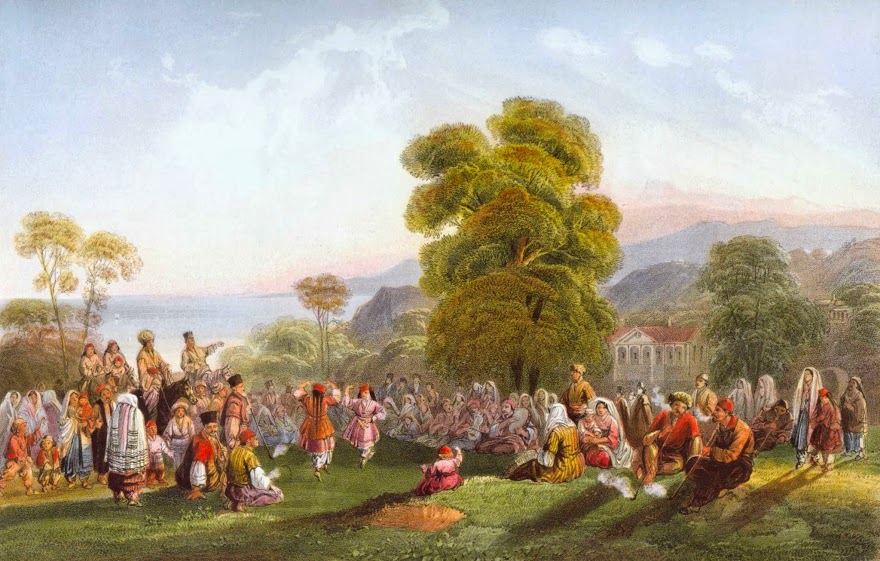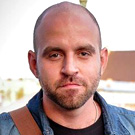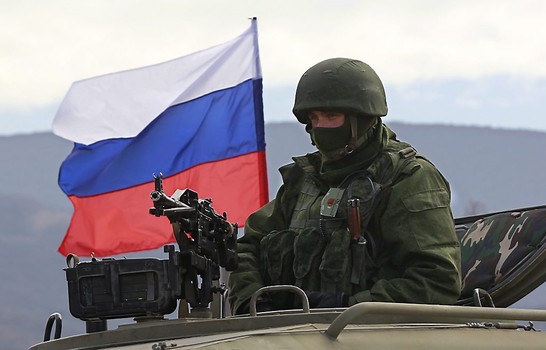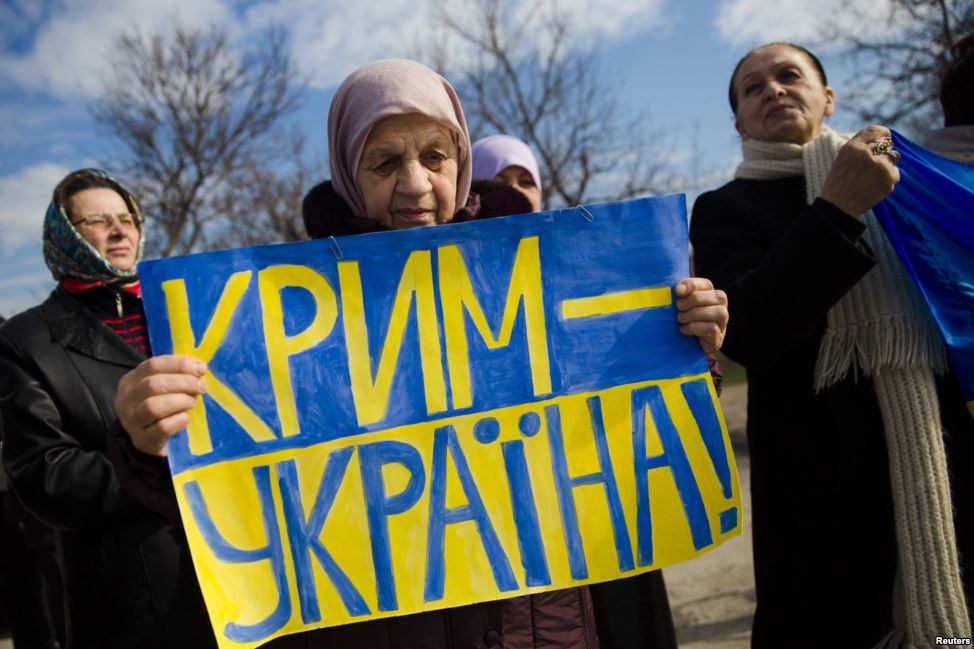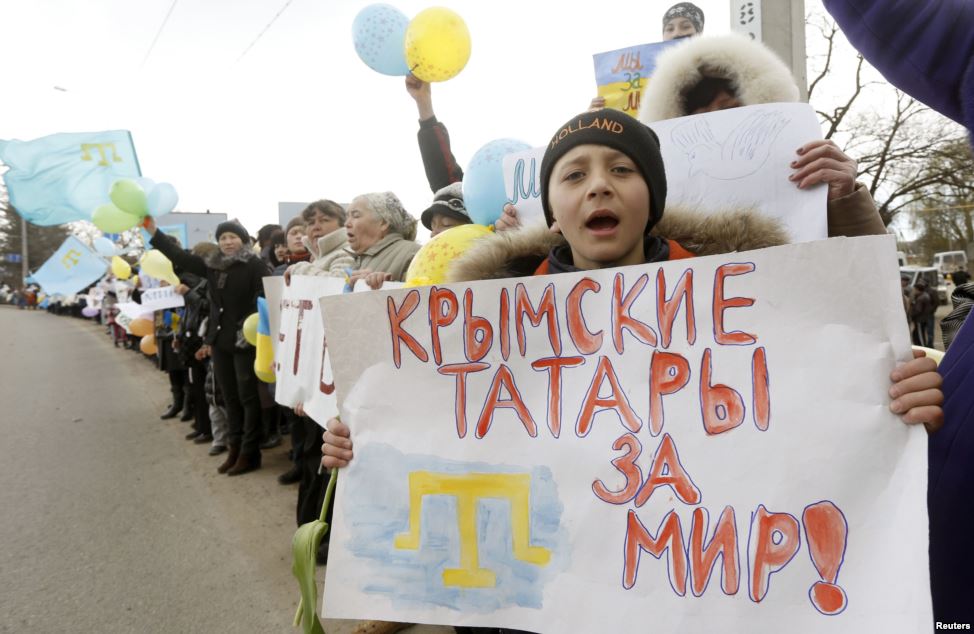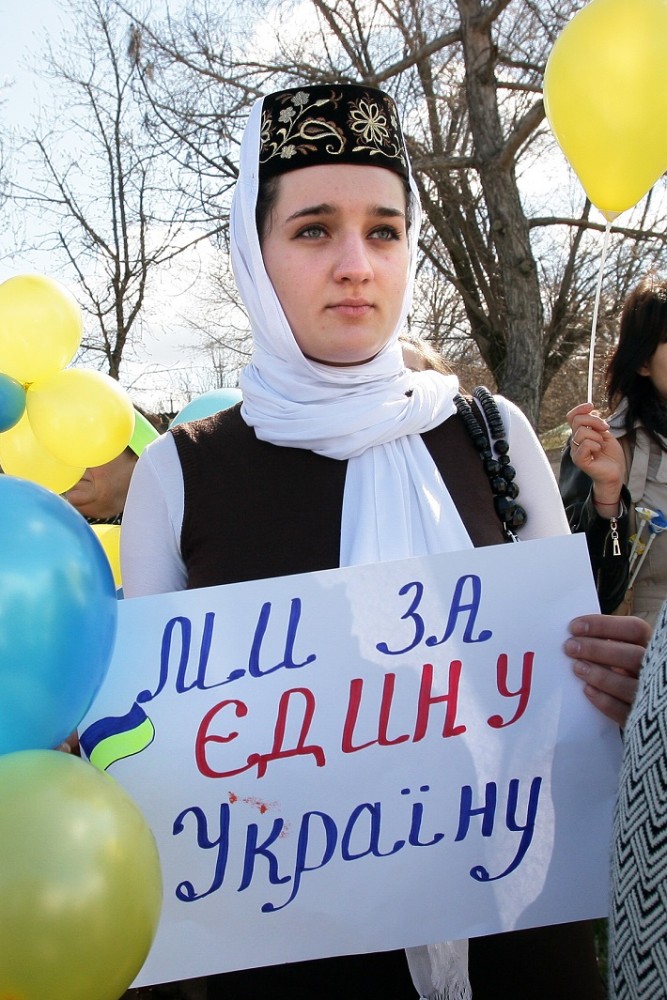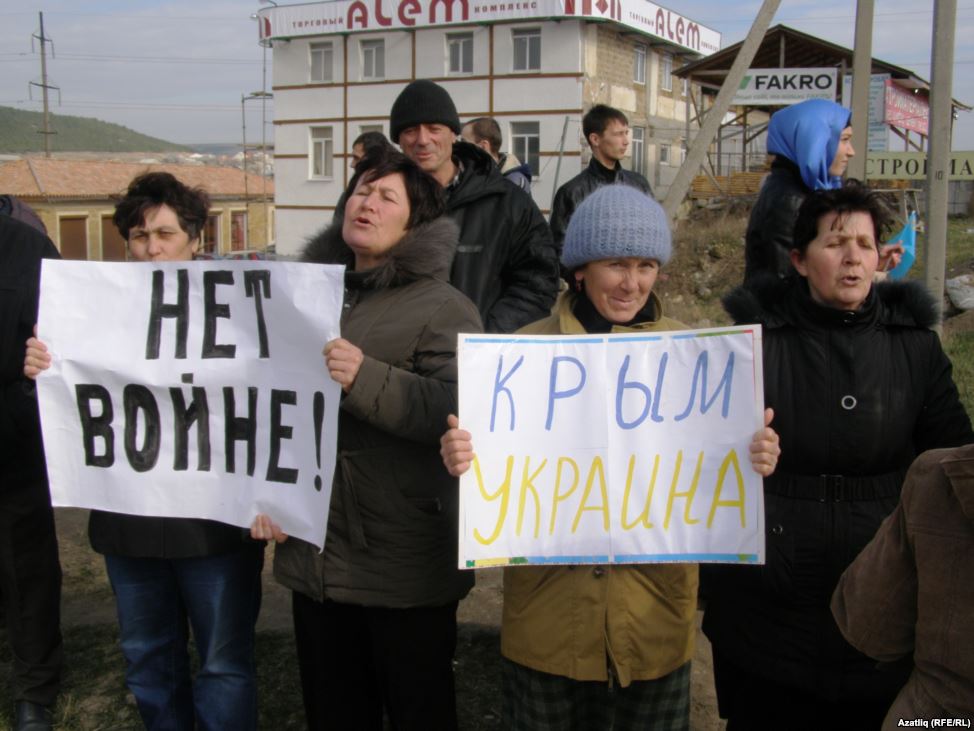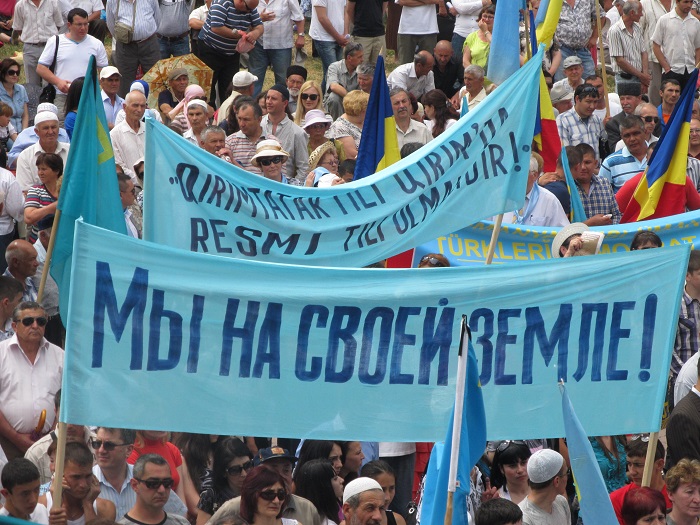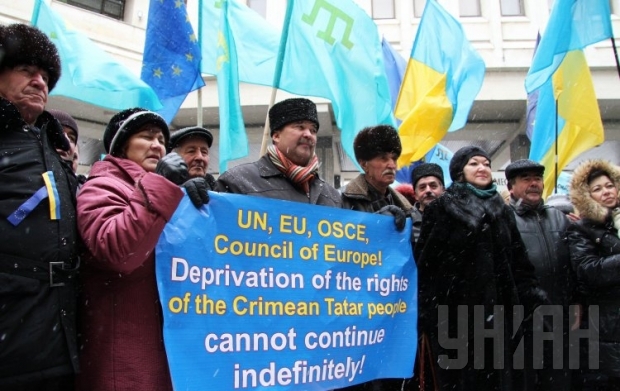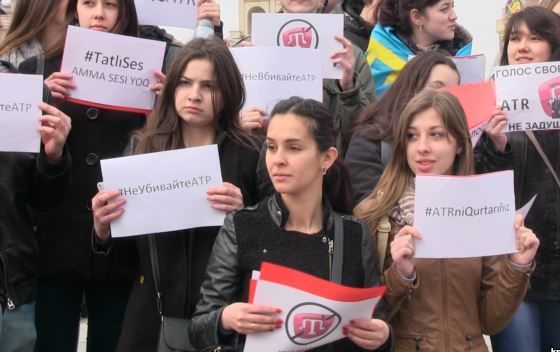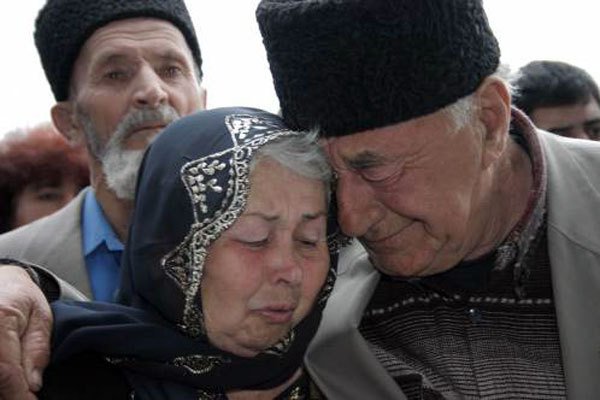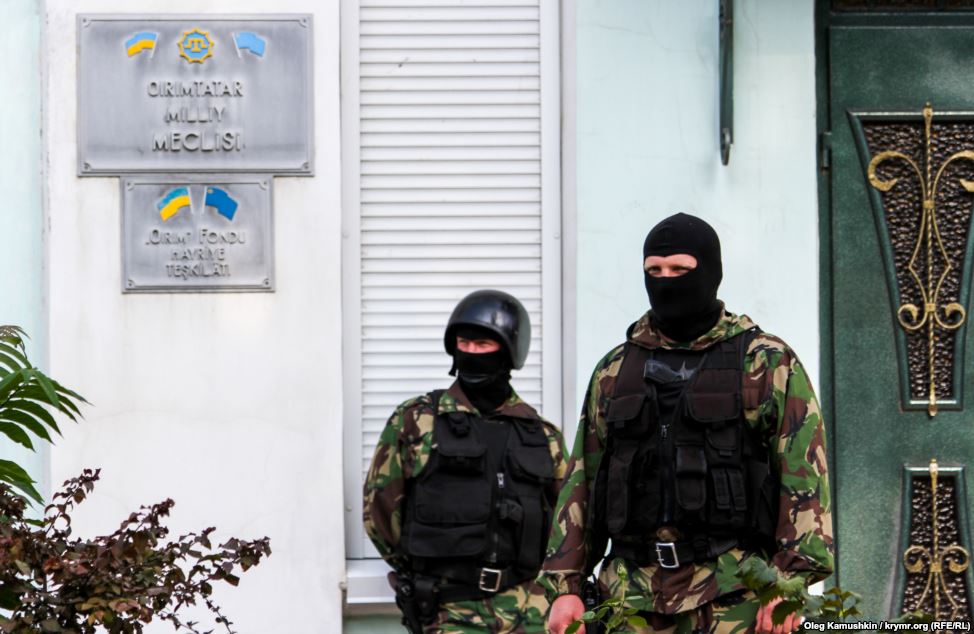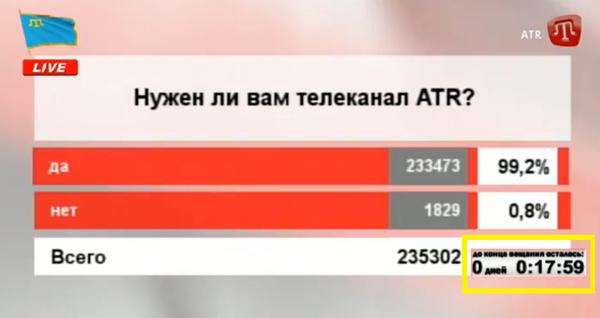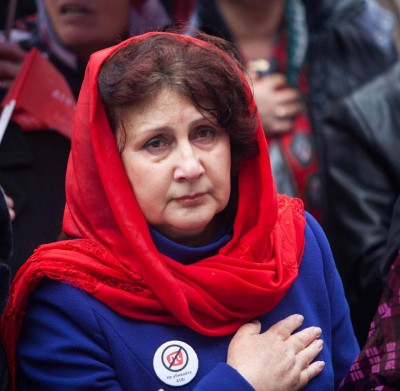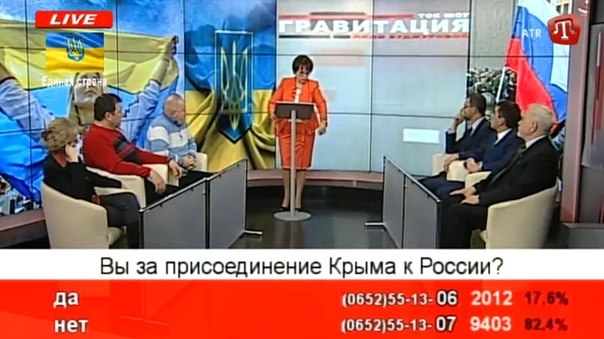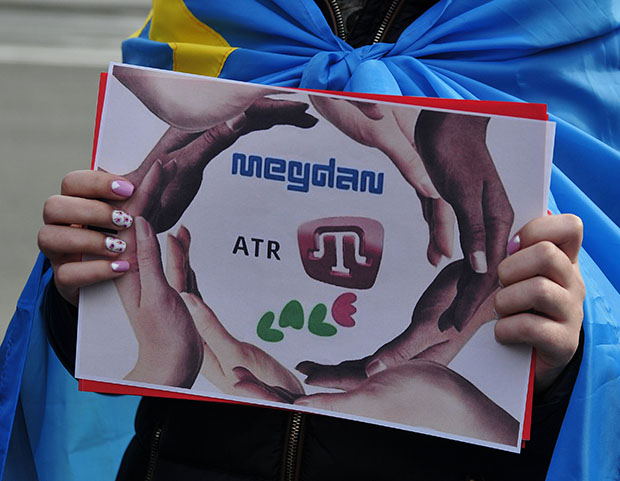The current war in Ukraine is “a battle between the Russian myth about Ukraine and the Ukrainian myth about itself,” a reflection of the fact that the contemporary world is among other things “a symbolic space” and that “one myth can be defeated only with the help of another myth,” according to Pavel Kazarin.
A myth, he points out in “Ukrainskaya Pravda,” “is not a synonym for the word ‘invention.’” In classical Greece, it referred to the concept of how an individual viewed the world and his place in it. A myth is an idea “about the universe’s architecture, about past and future, about values and taboos.”
Nowhere is this problem more critical than in the case of Crimea where there is a well-articulated “Russian myth” but no Ukrainian one has appeared “up to now,” Kazarin says. And as a result, “Ukraine uses the Crimean Tatar one.”
“The Russian concept of Crimea” includes such things as the defense of Sevastopol, the “Crimean Riviera,” Pushkin, Admiral Wrangel, the withdrawal of the White Army to Bizerte in Tunisia, and the second defense of Sevastopol – all things which serve to justify a Russian status for the Ukrainian peninsula.
Some say that “the Russian Crimea myth is in fact ‘a Soviet myth’ both in terms of the time of its creation and its realization,” Kazarin says. “Yes, that is possible,” he says, but one thing is undeniable: “it exists,” and it serves Moscow’s purposes. There is no alternative Ukrainian myth; there is only the Crimean Tatar one, which Ukrainians use.
The Crimean Tatar myth about Crimea is well-developed: it involves the story of a motherland taken from its people, the mass deportation, and the destruction of its language and culture by Russian occupiers.
“The weak point of the Crimean Tatar myth is that it is not inclusive but exclusive,” Kazarin says. “It is defensive and directed at the preservation of the borders of a group and not on their broadening,” a pattern that reflects the experience of the Crimean Tatars after the return for deportation as a minority in their own land.
But that gives rise to a problem with this myth: “It is difficult to be part of it if you are not a Crimean Tatar, because this myth looks toward the establishment of a national-territorial autonomy, quotas in the offices of governance, and a system of preferences.” And because of that, “it helps mobilize not only its supporters but also its opponents.”
“Today,” Kazarin continues, “Ukraine ever more frequently uses precisely the Crimean Tatar myth,” largely because “over the last 20 years, a uniquely Ukrainian concept about the peninsula has not appeared.” Kyiv’s authority there is “legal from the point of view of law but it hasn’t been legitimized by mythology.”
Ukraine has “all the preconditions” necessary for the elaboration of its own myth about Crimea. It is simply the case, Kazarin says, that this myth won’t be about military conquest or about historical or religious issues but rather about economics, about Crimea as an economic hub for the Black Sea region, as Ukrainian economist Andrey Klimenko has suggested.
A Ukrainian myth so constructed, the Kyiv commentator says, would be inclusive and appropriate for all regardless of ethnicity. But so far, because “inertia has turned out to be strong,” Ukrainians have not advanced it. Many think they don’t have to because the Crimean Tatar myth justifies Kyiv’s position.
But Kyiv’s failure to advance its own myth, Kazarin suggests, opens the way for Moscow to push its own. And it is “characteristic” of the Ukrainian approach that “the law on the restoration of the rights of those deported on the basis of ethnicity” was adopted by the Verkhovna Rada only a month after the Russian Anschluss.
Russia briefly tried to “privatize the Crimean Tatar” mythology by giving their language official status, but that effort collapsed with Moscow’s moves against the ATR television channel and its attacks on activists.
“Someone may say that all this is secondary, that economics and the military define politics,” Kazarin says, but anyone who does is “wrong.” That is because the contemporary world is a symbolic space, and those who control the symbols often control the politics more than those with the arms or the money.
Ukrainians should reflect on this, Kazarin says, as well as on the fact that Moscow has defined Crimea as “’a Russian Jerusalem,’” something it has never said about the Donbas. And if they do, he suggests, they will want to articulate their own Crimea myth in order to do battle with and defeat Russia’s version.

